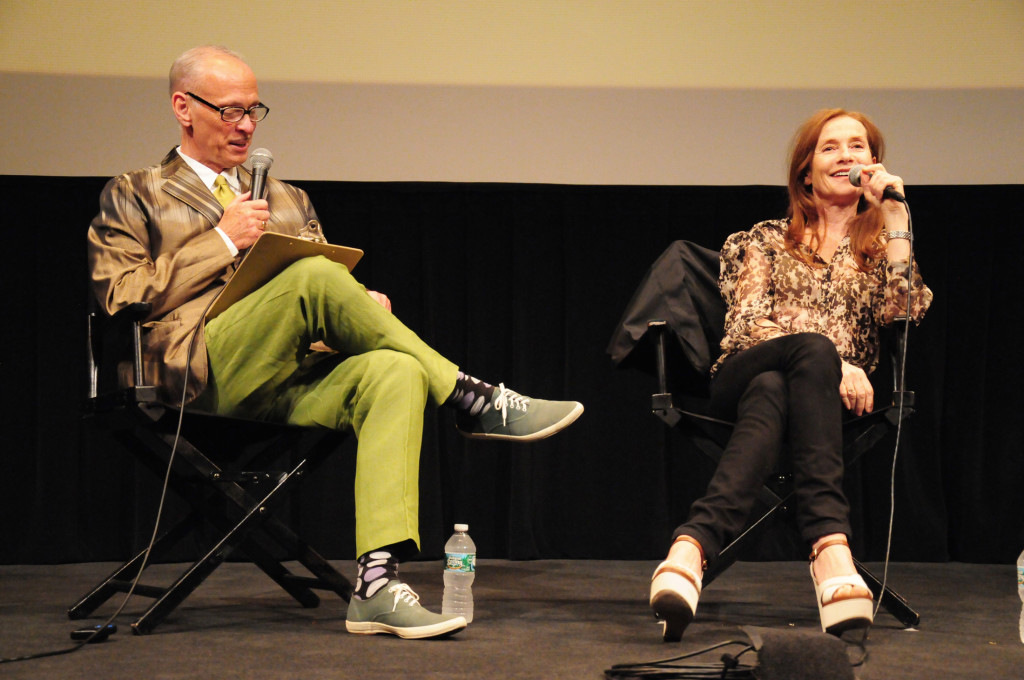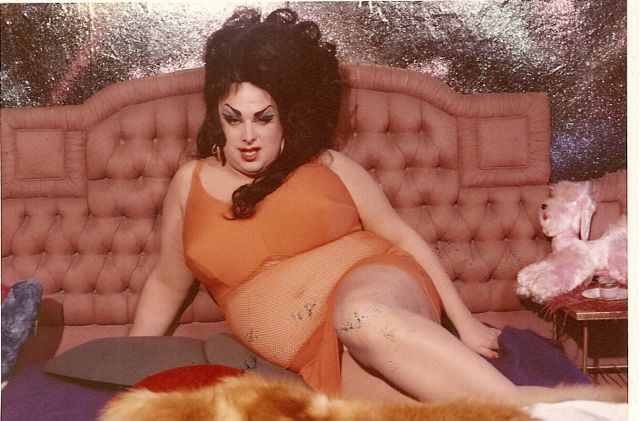Since his early days churning out underground sensations in his native hometown of Baltimore, John Waters has emerged at the forefront of American cinema with his diverse repertoire of tastefully filthy films that continue to delight and corrupt audiences around the world. A cult status filmmaker and “King of Bad Taste”, Waters has revolutionized the landscape of American popular culture with films that blur the boundaries between the highbrow and the sleazy; illustrating that sophistication and smut can indeed coexist.
While Waters’ films continue to preserve a level of subversive notoriety, it seems that a new wave of cultivated appreciation has recently surged for the feculent work of this world-class cinephile. After nearly five decades of expertly crafting shock and awe, the iconic provocateur has now graduated to the big leagues; as he not only moderated a discussion with French actress Isabelle Huppert last month at The Film Society of Lincoln Center, but will also be honored by The Film Society with a complete career retrospective in September.

On July 30th, The Film Society was brimming with delightfully perverse New Yorkers eager to hear from two artistically deviant mavericks. Sporting his signature ‘stache and patterned socks, John Waters sat down with Isabelle Huppert to discuss the French thespian’s long and illustrious career following a screening of Huppert’s latest film Abuse of Weakness; a semi-autobiographical film about French filmmaker Catherine Breillat, who suffered a stroke in 2004, then shortly thereafter got swindled out of nearly 1 million euros by a con man with whom she knowingly developed a bizarre, nonsexual relationship fueled by a complex interplay of manipulation and psychological sadomasochism. Considering Waters’ slate of boldly eccentric muses, it may come as a surprise that the auteur regards Huppert as his favorite actress. Many would expect it to be some obscure B-rated diva or cynically weathered ‘Hollywood broad’. “Another feel bad French movie, my favorite genre,” joked Waters as he introduced Abuse of Weakness, further gushing; “Watch out for her S&M orthopedic boots…My favorite scenes are when she falls down. I know, it’s awful but sheer perfection to watch.” As the two joined one another onstage following the screening, Waters could hardly contain his adoration for his idol. What ensued was a riotously epic conversation full of crass, laughter, and wit—with the occasional language barrier serving as the cherry on top between this unlikely duo.

“Is [Abuse of Weakness] your idea of a romantic comedy?” Waters jested, “I mean, do you get it? She [Breillat] didn’t even get laid.” Huppert, whose reactions to Waters’ delightfully offbeat questions ranged from amusement to bemusement, offered the kind of insight and quick-witted responses one would expect from a perverted genius’s favorite actress. On celebrity culture and the art of acting, he asked “Is it true that actresses want people to look at them, but don’t want people to see them? Breillat once said that being an artist means revealing one’s weakness to others. I thought it was the opposite.” “It’s a little of both,” replied Huppert. “As actors we like to explore this blurred border between normality and abnormality. I like exploring monstrous instincts, but I don’t think I ever play bad people. That is, monstrosity as something very normal and unrecognizable, because if it were recognizable you might see it and avoid it. Monstrosity, most of the time, is just a mask of normality.”
From there, the conversation expanded to include many other highlights from Huppert’s career such as directors that she has worked with, and those with whom she regrets not having the chance to do so. Like any good journalist, Waters interrogated Huppert with a surprising array of yes-or-no questions. He expressed curiosity as to whether or not the actress has ”ever cracked up in the middle of a really extreme scene” or whether its true—based on her role in Irreversible—that prostitutes say powerful men are more submissive in bed (a question to which Huppert answered affirmatively). But Waters closed the evening with his strangest compliment of all: calling Huppert’s impassive appearance in a leaked video of David O. Russell blowing up at Lily Tomlin on the set of I Heart Huckabees as his favorite performance of hers. “You showed no emotion!” he gushed. “Then suddenly, in the best Warholian move, you just check your makeup. That was the perfect, perfect way to upstage everybody!”
Throughout that evening’s banter, there were certainly a few restless and uncomfortable squirms from the audience, but what does one expect while being privy to a John Waters discussion? If anything, this was precisely the type of blunt and idiosyncratic exchange anyone should feel privileged to witness between Europe’s most limit-pushing actress and America’s Pope of Trash.
Speaking of, get ready for some of “the filthiest people alive” to once again grace the big screen as The Film Society of Lincoln Center also announced that it will host a complete retrospective of the scandalously dirty director’s career entitled, “Fifty Years of John Waters: How Much Can You Take?” Throughout the past five decades, Waters has created one of the most influential and beloved bodies of work in all of American cinema. His first six features are enduring staples of the midnight-movie circuit: “maniacal exercises in high-camp shock humor, each with the emotional pitch of an opera and content that wouldn’t be out of place in a psychological text on sexual fetishes” (FSLC). His next six projects, made with bigger budgets and more recognizable stars, show a refinement in the auteur’s style as he burrows deeper into his favorite film genres, though they unmistakably represent attempts to subvert Hollywood from within. Although Waters isn’t regarded as a ‘queer filmmaker’ per se, his cinematic commentary on mainstream culture, combined with his choice of muses, have undoubtedly catapulted this satirist as one of the most prominent voices in LGBTQ cinema.

Celebrating the 50th anniversary of his first short Hag in a Black Leather Jacket (made when he was only 18), the retrospective will be the filmmakers’ first in the US, and will showcase all 12 of the icon’s features, including Pink Flamingos, Polyester, Hairspray, Cry Baby, Mondo Trash, Serial Mom, and Multiple Maniacs; which introduced the world to his iconic and immortal muse Divine. The series will kick off with a special opening night presentation of Female Trouble, followed by a discussion with John Waters and critic J. Hoberman. Taking place from September 5-14th, the career spotlight will also include free showings of Waters’ rarely seen shorts such as Eat Your Makeup and Roman Candles, in addition to a curated sidebar of films the director/author/comedian wishes he’d made.
And what John Waters retrospective would be complete without the use of our olfactory senses? Scratch-and-sniff Odorama cards will be handed out during the screening of Polyester, and at 10 points throughout the film the audience will be instructed to scratch the cards and smell everything that they see on screen. Ensue the wave of enthusiasm and disgust! I think I can already hear the combined response of “Gross!” and “Awesome!” coming from fellow viewers.
So is Waters excited about the tribute? “Are you kidding? I’m beyond excited! It took me 50 years to claw my way up from the cinematic gutters of Baltimore to Lincoln Center. Finally I’m filthy and respectable!”
For ticket information and a full schedule of screening times for the Waters retrospective, you can check out The Film Society of Lincoln Center’s lineup here. If space is available, free tickets will be distributed an hour before the film at the Elinor Bunin Munroe box office.
Abuse of Weakness begins its one-week exclusive theatrical run on August 15 at the Film Society of Lincoln Center, and Huppert will also share the Lincoln Center stage with Cate Blanchett in a production of Jean Genet’s The Maids beginning August 6.
Enjoy the show!
Follow Demi:
Facebook: facebook.com/demionfilm
Twitter: twitter.com/DemionFilm

